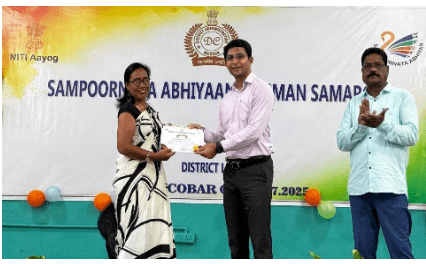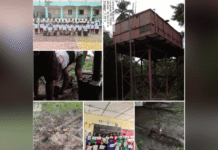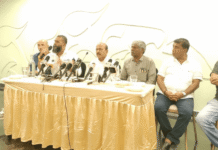The district-level Sampoornata Abhiyaan Samman Samaroh held in Car Nicobar has spotlighted significant grassroots progress under the Aspirational Block Programme, with recognition given to frontline workers, departmental teams, and local changemakers for achieving saturation in key welfare indicators.
Organised at Priyadarshini Hall in Tamaloo, the event served as a milestone review of the district’s progress in inclusive development. The programme was conducted under the guidance of NITI Aayog and saw the participation of multiple government departments, community stakeholders, and members of civil society. The highlight of the event was the felicitation of Block-level Officers and Frontline Workers for their contributions in achieving measurable progress across various domains such as healthcare, sanitation, women empowerment, and nutrition.
The ceremony also featured compelling personal testimonies from Self-Help Group (SHG) members and tuberculosis (TB) survivors, presented under the ‘Sankalp Se Siddhi’ initiative. These first-hand narratives offered glimpses into how government programmes are making tangible differences in the lives of individuals, particularly women and vulnerable groups in remote areas like Car Nicobar.
SHG representatives spoke about how access to credit, vocational training, and collective enterprise has transformed household incomes and created a ripple effect of empowerment across communities. TB survivors shared stories of recovery and reintegration, reflecting the impact of sustained health interventions and awareness campaigns.
Beyond the honours and speeches, the event underscored the importance of inter-departmental coordination in achieving saturation across key indicators. Various government departments had set up informational kiosks at the venue, displaying updates on ongoing welfare schemes and community-based interventions. These included health outreach, nutritional assistance, rural livelihood schemes, and sanitation drives, among others.
Officials noted that the success of the Aspirational Block Programme in Car Nicobar has been driven by consistent community engagement, data-driven decision-making, and adaptive implementation models that take into account the unique geography and cultural context of the region.
The event also served to reaffirm the District Administration’s commitment to holistic development that is both inclusive and sustainable. The recognition of frontline workers, often the first point of contact between government and citizen, highlighted their role in translating policy into real-world change. Their efforts in challenging environments, from remote villages to underserved tribal settlements, have contributed to visible improvements in social indicators.
The Aspirational Block Programme, designed by NITI Aayog, is aimed at improving the performance of backward districts through competition, collaboration, and real-time monitoring. Car Nicobar’s inclusion in this framework has enabled it to tap into central resources and performance-based incentives, fostering a culture of accountability and innovation.
The Sampoornata Abhiyaan specifically targets saturation in priority indicators, ensuring that no eligible beneficiary is left out of key government schemes. Areas of focus include institutional delivery, school enrolment, immunisation, safe drinking water, and sanitation coverage. Saturation in these domains implies 100% coverage, a milestone now achieved in several metrics within the Car Nicobar block.
By placing community voices at the centre of the event, the programme also ensured that beneficiaries are not just passive recipients but active participants in the development process. This participatory model is being seen as crucial to the sustainability of welfare schemes, especially in island districts where logistical and infrastructural challenges are considerable.
As the event concluded, officials and attendees alike acknowledged that while much has been accomplished, continued vigilance and innovation will be needed to maintain and build upon the gains. The focus now shifts to consolidating these successes and replicating the model across other parts of the Nicobar District.





